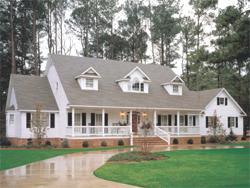Many Homeowners Locked into Current Homes, Unable to Sell
New York, NY, November 18, 2024-"Here’s one of the most striking trends in the U.S. right now: Homeowners are sitting on a record $35 trillion of equity, more than double what had built up on the eve of the 2008 housing crash,” reports the Wall Street Journal.
“Skyrocketing property values are dividing Americans into three broad camps: those who are now locked out of homeownership, those who are effectively stuck in their current homes, and a lucky minority who have the flexibility to cash out at a historic high.
“Things are bleak at the base of the U.S. housing ladder. After a run-up in home prices during the pandemic, property values continued to increase even as interest rate hikes made mortgages less affordable.
“This has changed who walks through real-estate agents’ doors. The share of sales to first-time buyers has dropped to a record low 24%, according to a recent report by the National Association of Realtors, or NAR.
“And first-time buyers who do show up have aged almost a decade. Traditionally, Americans got a foothold on the property ladder during their late 20s. Today, the median age of first-time buyers is 38. By the time many Americans can afford a home now, they have missed out on 10 years of wealth creation that older generations enjoyed.
“There is a gender element, too. Single women buying their first home are six years older than single men. Lower median incomes mean they need more time to save a down payment. However, they are giving priority to getting on the housing ladder. At 20%, single women’s share of first-time home purchases has jumped to more than double that of single men.
“Homeownership is a luxury that many young families can no longer afford. Nearly three-quarters of people who bought homes between July 2023 and June 2024 had no children under 18 living with them-another all-time low in the NAR’s records. True, falling birthrates and the fact that couples are starting their families later play a role here. But it is also a sign that more American parents are stuck renting. Unable to lock in their housing costs with a 30year, fixed-rate mortgage, they are exposed to future rent inflation.
“Millions of households lucky enough to be on the property ladder face a different set of issues. Existing homeowners are becoming much wealthier on paper as house prices rise. They are sitting on $315,000 of equity on average, up from about $186,000 at the start of the pandemic, “data from CoreLogic shows.
But tapping that bounty isn’t easy: If owners decide to move, they would have to take on a much more expensive mortgage. Almost seven in ten existing borrowers have a rate below 4.5%, based on an analysis by Jim Egan, Morgan Stanley’s U.S. housing strategist.
“A smaller group representing about a quarter of all mortgage holders were savvy enough to buy or refinance their homes when borrowing costs hit all-time lows during the pandemic and now enjoy a sub-3% rate.
“This group has the least incentive of all to sell and sacrifice their historically low housing costs. However, the trade-off is no freedom of movement.
“It isn’t cheap for owners to tap their equity in other ways either. The average rate on a home-equity loan is 8.41%, according to Bankrate data. A home-equity line of credit is even more expensive.
“But today’s housing market is a gold mine for anyone who owns outright. This group represents almost 40% of American homeowners and includes anyone wealthy enough to not need home financing at all, as well as people who have lived in their property long enough to have paid down most of their mortgage or cleared it entirely.
“Unsurprisingly, older people are very active in the current housing market. The typical age of sellers has reached an all-time high of 63.Many among this generation had to stretch to buy their first home in the 1980s, when affordability was also poor. They are now able to fund a comfortable retirement using the wealth stored in their homes. However, owners in some parts of the country might have a short window to cash out at the top of the market. Home prices are starting to fall in certain states, notably in areas of Texas and Florida.
“House hunters have been stuck on the sidelines hoping that mortgages will become more affordable as the Federal Reserve cuts interest rates. But the opposite is happening. The weekly average rate on a 30-year fixed-rate loan is now back at 6.78%, up from 6.09% the week the Fed began loosening in mid-September, Freddie Mac’s latest data shows."
